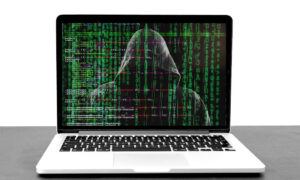
How to Protect Yourself from Identity Theft After the Government Hack
It has come to light that the British Columbia government’s medical services have recently been subject to a hack.
The perpetrators were successful in gaining access to the personal and health information of millions of British Columbians.
The stolen data includes names, dates of birth, addresses, phone numbers, health card numbers, and medical histories.
This breach is significant and could potentially have long-term implications for those affected.
The first question that people ask is:
*What info did the hackers get?
*What will they do with it?
The reality is that any information is valuable to hackers, but not necessarily for the same reason.
Hackers steal for different purposes, such as:
Medical identity theft involves using someone’s health insurance, medical records or prescriptions to obtain health care or drugs. This could affect the quality of your health care, insurance coverage, and medical bills.
– Commercial identity theft involves using someone’s business name, logo or trademark to sell counterfeit goods or services. This could damage your reputation, your customer relationships and your profits.
– Financial identity theft involves using someone’s credit card, bank account or other financial information to make purchases or transactions. This could ruin your credit score, your savings and your financial security.
Our information is out there.
Unfortunately, this information and more are out there, and identity theft can affect anyone. We see the results daily in the news, such as fraudulent charges, fake accounts, phishing emails, etc. Identity theft can cause a lot of stress, hassle and loss for the victims.
The second question many people ask is: what are some signs of identity theft? The symptoms of identity theft can vary depending on the type and extent of the theft, but some common ones are:
You receive bills, statements or notices for accounts or services you did not open or use.
– You notice unauthorized or unfamiliar charges or withdrawals on your accounts or cards.
– You get calls or letters from debt collectors or companies about debts you do not owe or products you did not order.
– You find errors or discrepancies on your credit reports or scores.
– You need help with your tax returns, such as being notified that someone else filed a return using your name or Social Security number.
– You experience difficulties with your health care, such as being denied coverage, receiving bills for treatments you did not receive or finding out that someone else used your health insurance.
If you notice any signs of identity theft, you should act quickly to stop the damage and protect yourself. Some steps that you can take are:
– Contact the companies or institutions where the fraud occurred and report the issue. Ask them to close or freeze the affected accounts and send you confirmation letters.
– Place a fraud alert on your credit reports with the three major credit bureaus (Equifax, Experian and TransUnion). This will make it harder for identity thieves to open new accounts in your name.
– Review your credit reports and dispute any errors or fraudulent items. You can get a free copy of your credit report from each bureau once a year at www.annualcreditreport.com.
– File a report with the Federal Trade Commission (FTC) at www.identitytheft.gov. This will help you create an identity theft recovery plan and get a personal recovery guide.
– File a report with your local police department and get a copy of the police report. This will prove the crime and help you with any legal issues.
So, how can you Shield yourself from identity theft after the BC government hack? The best way is to have a robust Identity theft plan that monitors your personal information, not just your bank and credit cards. A good identity theft plan should:
– Alert you of any suspicious activity on your accounts, such as new inquiries, changes or transactions.
– Help you resolve any issues that arise from identity theft, such as disputing charges, closing accounts or restoring your credit.
– Cover you for any expenses that result from identity theft, such as legal fees, lost wages or identity restoration services.
Having an identity theft plan can give you peace of mind and protection in case you become a victim of identity theft. It can also help you prevent identity theft by educating you on keeping your information safe and secure.
If you want to learn more about how to protect yourself from identity theft after the BC government hack, visit our website or contact us today. We offer a comprehensive identity theft plan.
“I am deeply concerned about the safety of my family’s assets and rights. That’s why I have taken steps to access resources that provide protection against identity theft and unexpected legal events. With the alarming increase of these crimes, it’s important that individuals, business owners, and families take proactive measures to safeguard their well-being and prevent financial loss.”
If you have any concerns, book a free, confidential strategy session for immediate tips.
Andrew White,
Identity Theft Strategist
Tel/ text 604 807 1667
email Nav-biz@outlook.com
Web site www.itpstrategies.com



Recent Comments